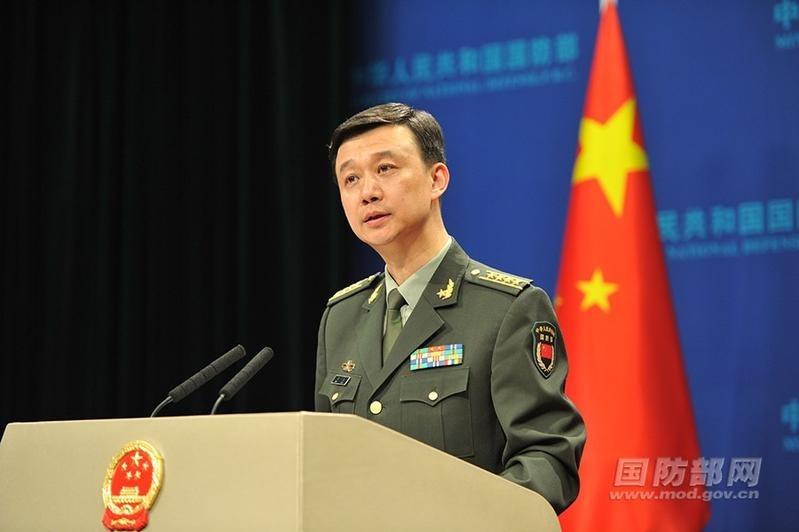 Wu Qian, spokesperson for China's Ministry of National Defense, briefs the press in Beijing. (PHOTO / MOD.GOV.CN)
Wu Qian, spokesperson for China's Ministry of National Defense, briefs the press in Beijing. (PHOTO / MOD.GOV.CN)
BEIJING - A Chinese military spokesperson on Wednesday said the responsibility for the China-India border conflicts rests entirely with the Indian side.
Wu Qian, a spokesperson for the Ministry of National Defense, expressed the hope that peace and stability are maintained in the border areas
Wu Qian, a spokesperson for the Ministry of National Defense, expressed the hope that peace and stability are maintained in the border areas.
Wu made the remarks at a regular press conference in Beijing.
Wu stressed that China has sovereignty over the Galwan Valley region and the Chinese border troops have been patrolling and on duty in this region for many years.
He said that since April, the Indian border troops have begun to unilaterally build facilities along the Line of Actual Control (LAC) in the Galwan Valley region, regarding which China has lodged representations and oppositions many times.
In the early morning of May 6, the Indian border troops trespassed into China's territory, built fortification and barricades and impeded the patrol of Chinese border troops, in an attempt to unilaterally change the status quo of border control and management. The Chinese border troops have been forced to take necessary responding measures and strengthen management and control in these areas.
With China's vigorous push, the two sides agreed to hold bilateral communications through multiple channels. On June 6, the border troops of both countries held the first Corps Commander-level meeting and reached consensus on easing the situation through concrete measures. The Indian side promised that they would not cross the estuary of the Galwan river to patrol and build facilities, and the two sides would discuss and decide phased withdrawal of troops through the meetings between on-scene commanders.
However, on the evening of June 15, India's front-line troops, in violation of the agreement reached at the Corps Commander-level meeting, once again crossed the LAC for deliberate provocation, and even violently attacked the Chinese officers and soldiers who went there for negotiation, thus triggering fierce physical conflicts and causing casualties.
In response to such a deliberate provocation, Chinese border troops took decisive countermeasures in self-defense, resolutely fought back against the violent acts of the Indian side, and effectively safeguarded China's national sovereignty and territorial integrity, said Wu.
Wu stressed that India should bear the full responsibility for the incident that was solely and completely triggered by its breach of consensus and unilateral provocations.
"The Chinese side demands that India should severely punish those who should be held accountable, strictly discipline its front-line troops so as to ensure that such incidents do not happen again," Wu said.
READ MORE: China, India agree to ease border tension
After the clash, China and India have stayed in close communication through military and diplomatic channels, Wu said.
The two countries' foreign ministers reached an agreement over a phone conservation to handle the Galwan Valley clash justly and fairly and cool down the situation on the ground. The second Corps Commander-level meeting was held on June 22 where the two sides exchanged views on the management and control of border tensions and the maintenance of peace and stability in the border areas, according to Wu.
Noting that China and India are important neighbors to each other, Wu said maintaining a peaceful and tranquil border region is in the common interests of both sides and requires common efforts as well.
China hopes that India will work with China, follow faithfully the important consensus reached between leaders of the two countries, abide by the agreements reached between the two sides, and properly handle relevant issues through dialogues and negotiations at various levels, Wu said.
ALSO READ: China, India to deal with border clash impartially
"The two sides should make great efforts to jointly ease current border tensions and uphold peace and stability in these areas," said Wu.


